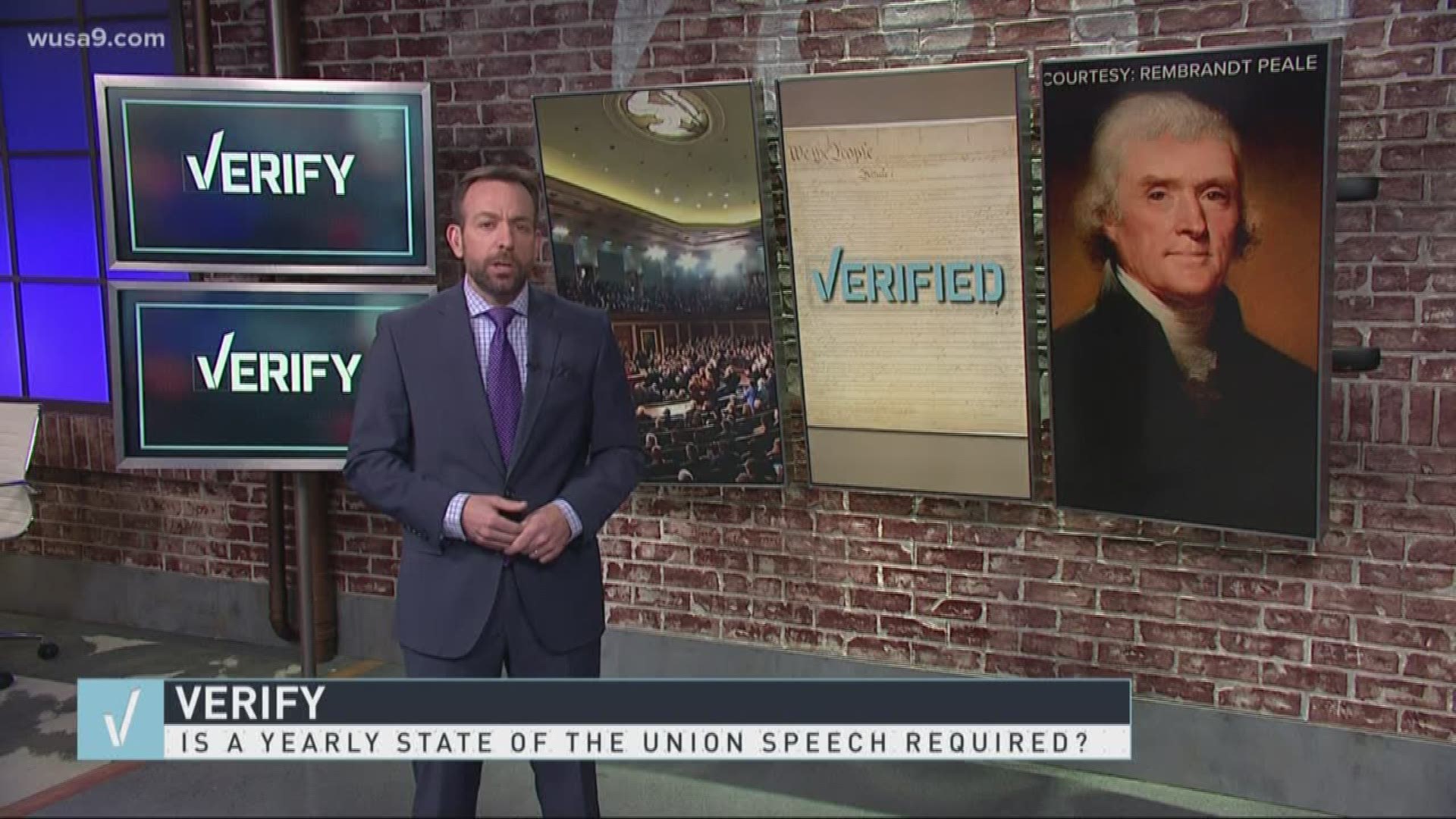WASHINGTON — QUESTION:
Is an annual State of the Union speech required by law?
ANSWER:
Under the Constitution, the President is required to brief Congress on the "State of the Union"; however, he is not required to speak or even deliver one annually.
SOURCES:
Congressional Research Service: "The President's State of the Union address: Tradition, Function, and Policy Implications"
Congressional Research Service: "The President's State of the Union Message: Frequently Asked Questions"
History, Art & Archives- U.S. House of Representatives- "State of the Union Address"
Erwin Chemerinsky- Dean of Berkeley Law School
PROCESS:
Trump's anticipated State of the Union address is stirring up controversy with House Democrats seeking to postpone the event.
Viewer C.L. Chambers of Stafford County asked our Verify team whether "an annual State of the Union speech is required by law."
The tradition for a President to deliver a briefing on the "State of the Union" goes back to the Constitution.
Article II Section 3 says the President "shall from time to time give the Congress information of the state of the union and recommend to their consideration such measures as he shall judge necessary and expedient."
So to the first point, yes, the President is obligated to brief Congress on how were doing as a country. However, the clause never mentions it has to take annually, nor that it has to be a formal speech.
"The Constitution just says from 'time to time," it is required, but the timing and format are not specified," Erwin Chemerinsky, Dean of Berkeley Law School, said. "It could be in July or October or multiple times a year."
The Framers also left the format of the message open to interpretation.
"A letter would be sufficient," Chemerinsky said. "Conceivably an email or a text would be sufficient. An address is tradition, not a constitutional requirement."
Much of how the ceremony is ritualistic, based on customs of predecessors, rather than laws.
George Washington was the first to set a precedent by making his address every year with a speech before Congress. John Adams continued the tradition set by Washington, but Thomas Jefferson, known to be a poor public speaker, killed that tradition and just sent a letter to both houses.
Submitting a letter to Congress became the custom for the next century, from 1801 to 1913, according to a Congressional Research Service report.
Trump was prepared to deliver his speech January 29, 2019, after receiving an official letter from House Speaker Nancy Pelosi. Two weeks later, Pelosi rescinded her invitation and instead suggested postponing the speech until the government reopened.
She also proposed Trump submit a letter to Congress on January 29, like Jefferson had done back in the day.
So we can Verify, yes, in some form or fashion, the president is required to brief Congress, but he's not required to do it every year and it doesn't necessarily have to be a speech.

